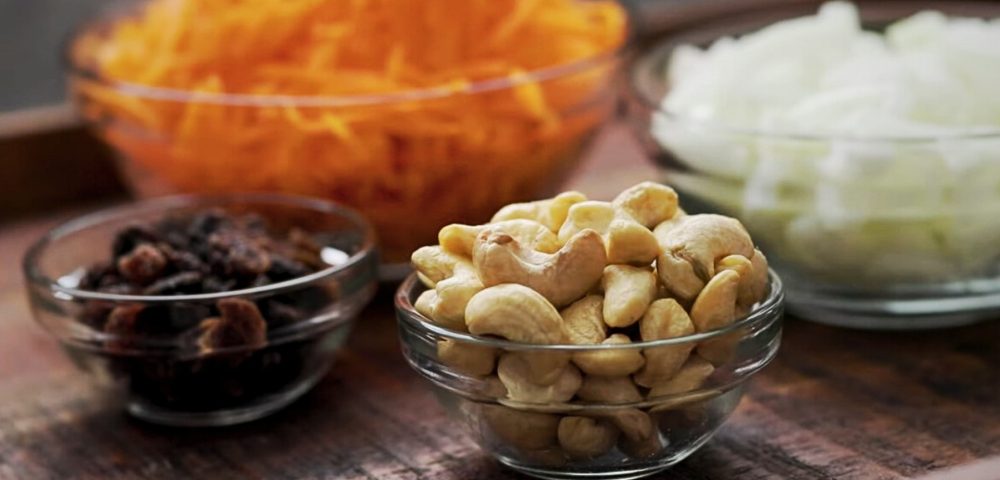Cashews, the delicious and nutrient-rich nuts, play a significant role in managing healthy blood sugar levels. Understanding blood sugar and its regulation is crucial for maintaining overall health. Cashews offer unique nutritional properties that contribute to blood sugar management. Cashews provide several other health benefits for the body.
Blood sugar, also known as blood glucose, refers to the concentration of glucose in the bloodstream. It is regulated by various factors and is essential for providing energy to the body’s cells. The body closely regulates blood sugar levels to ensure they stay within a healthy range.
Cashews are kidney-shaped nuts that belong to the tree nut family. They are known for their creamy and buttery texture, making them a popular snack and ingredient in various dishes. Cashews are loaded with essential nutrients that support overall health.
Cashews have an impressive nutritional profile. They are rich in healthy fats, including monounsaturated and polyunsaturated fats, which have been shown to support healthy blood sugar levels.
Cashews are also high in dietary fiber, which aids in slowing down the absorption of glucose and regulating blood sugar levels. Furthermore, they are moderate in carbohydrates and serve as a source of plant-based protein, making them an excellent option for individuals managing blood sugar.
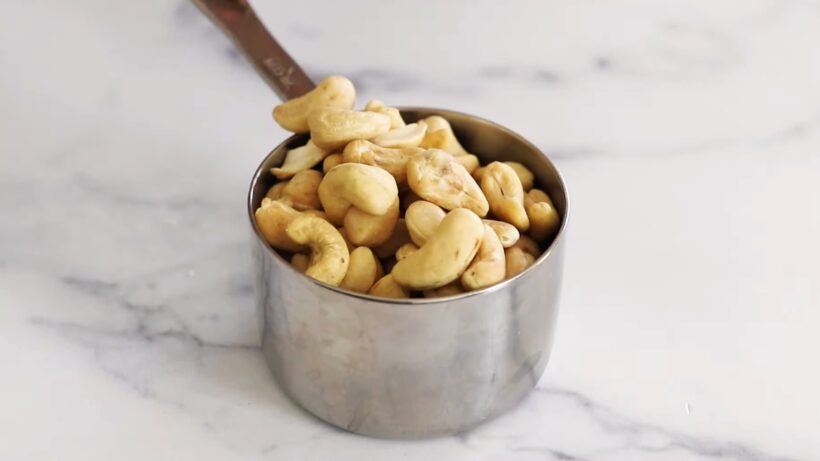
In addition to managing blood sugar levels, cashews offer several other health benefits. They promote heart health by providing unsaturated fats and reducing the risk of cardiovascular diseases.
Cashews also support weight management due to their satiating properties and ability to control appetite. The nutrients present in cashews contribute to maintaining strong and healthy bones.
Incorporating cashews into a healthy diet is easy. They can be enjoyed as a snack on their own or combined with other nuts and dried fruits.
Cashews can also be added to main dishes, such as stir-fries or curries, for a nutritious boost. They make a flavorful addition to salads and side dishes, enhancing both taste and nutritional value.
When consuming cashews, it is essential to practice portion control as they are calorie-dense. It is also important to consider any allergies or sensitivities to nuts before incorporating cashews into your diet.
By understanding the role of cashews in managing blood sugar levels and considering the various health benefits they offer, you can make informed decisions about incorporating this versatile nut into your diet for improved overall health and well-being.
Page Contents
- 1 The Role of Cashews in Managing Healthy Blood Sugar Levels
- 2 Understanding Blood Sugar Levels
- 3 What Are Cashews?
- 4 Nutritional Profile of Cashews
- 5 How Can Cashews Help Manage Blood Sugar Levels?
- 6 Other Health Benefits of Cashews
- 7 How to Incorporate Cashews in a Healthy Diet?
- 8 Considerations and Precautions
- 9 The Role of Cashews in Managing Healthy Blood Sugar Levels:
- 10 Frequently Asked Questions
- 10.1 Are cashews suitable for a diabetic diet?
- 10.2 How do cashews affect blood sugar levels?
- 10.3 Can eating cashews improve cholesterol profiles?
- 10.4 How many cashews should I consume daily for a healthful life?
- 10.5 Are unsalted raw cashews better for managing blood sugar levels?
- 10.6 Can cashews be included in a low carbohydrate diet?
The Role of Cashews in Managing Healthy Blood Sugar Levels
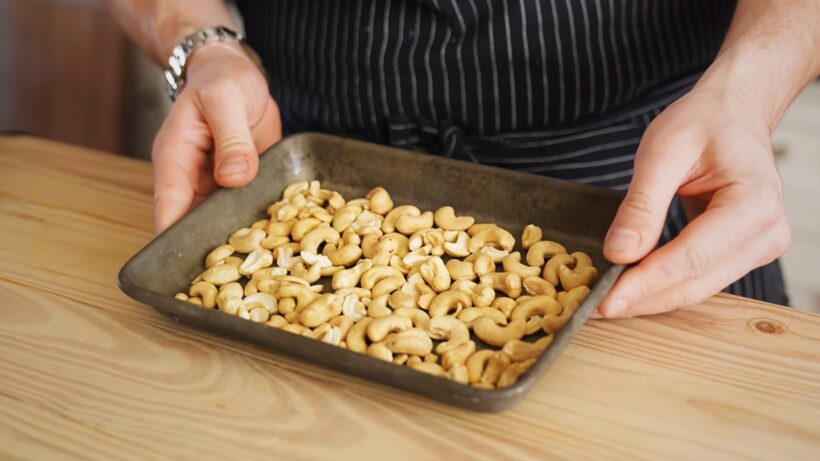
Cashews play a significant role in managing healthy blood sugar levels. Here are some key points to consider:
- Nutritional Benefits: Cashews have a vital role in regulating overall health due to their abundance in essential nutrients. They are packed with healthy fats, fiber, and protein, all of which contribute to stabilizing blood sugar levels. The presence of these nutrients aids in slower digestion and absorption of carbohydrates, preventing sudden spikes in blood sugar levels.
- Low Glycemic Index: Cashews possess a low glycemic index, resulting in minimal impact on blood sugar levels. Foods with a low glycemic index gradually release glucose into the bloodstream, preventing abrupt spikes and crashes in blood sugar.
- Healthy Fat Content: Cashews contain monounsaturated and polyunsaturated fats which are beneficial for improving insulin sensitivity. Enhancing insulin sensitivity allows for efficient glucose absorption by cells, thus helping to maintain stable blood sugar levels.
- Fiber Content: Cashews serve as an excellent source of dietary fiber, aiding in digestion and slowing down the absorption of sugar into the bloodstream. This process helps to prevent rapid increases in blood sugar levels following meals.
- Portion Control: While cashews provide health benefits, it is crucial to consume them in moderation. This is due to their calorie density, as consuming large quantities of cashews can lead to weight gain, which can impact blood sugar control.
Incorporating a handful of cashews into a balanced diet can be advantageous for managing healthy blood sugar levels. It is important to note that individual dietary needs may vary.
Seeking guidance from a healthcare professional or registered dietitian can provide personalized advice on incorporating cashews into a diabetes management plan.
Additionally, take into consideration any allergies or medical conditions before making significant changes to your diet.
Understanding Blood Sugar Levels
Understanding blood sugar levels is crucial for maintaining overall health and managing conditions such as diabetes.
Blood sugar, also known as blood glucose, refers to the amount of glucose present in the bloodstream at any given time. Here are some key points to consider when it comes to comprehending blood sugar levels:
- Active monitoring: It is important to actively monitor blood sugar levels to ensure they remain within a healthy range. Regular blood tests can provide accurate measurements of glucose levels and help identify any potential issues.
- Normal range: The normal blood sugar range varies depending on the time of day and individual circumstances. Generally, fasting blood sugar levels should be between 70 and 100 mg/dL (milligrams per deciliter), while random blood sugar levels should be below 125 mg/dL.
- Hyperglycemia: This refers to high blood sugar levels, often seen in individuals with diabetes. If blood sugar levels consistently exceed the normal range, it can lead to various health complications. Effective management through lifestyle changes and medication is vital in such cases.
- Hypoglycemia: This refers to low blood sugar levels, typically caused by skipping meals or excessive insulin use. Symptoms may include dizziness, shakiness, and confusion. Consuming fast-acting carbohydrates like fruit juice or glucose tablets can help raise blood sugar levels back to normal.
- Target levels: For individuals with diabetes, target blood sugar levels may differ. These targets are typically set by healthcare professionals and aim to maintain stable glucose levels throughout the day.
Understanding blood sugar levels is essential for anyone, particularly those with diabetes. By actively monitoring and managing blood sugar levels, individuals can maintain overall health and reduce the risk of complications associated with high or low glucose levels.
What Is Blood Sugar?

Blood sugar refers to the concentration of glucose, a type of sugar, in the bloodstream. What Is Blood Sugar? It is an essential component of our body’s energy source and plays a crucial role in maintaining overall health. Blood sugar levels are regulated by the hormone insulin, which is produced by the pancreas.
Glucose is obtained from carbohydrates that we consume in our diet. When we eat food, especially those high in carbohydrates, our blood sugar levels rise.
In response, the pancreas releases insulin into the bloodstream. Insulin helps remove glucose from the blood and transports it into the body’s cells, where it is used for energy production.
Maintaining normal blood sugar levels is vital for proper bodily functions. When blood sugar levels are too high, it can lead to hyperglycemia, which is a characteristic of diabetes.
Conversely, if blood sugar levels are too low, it can result in hypoglycemia, leading to symptoms such as dizziness, weakness, and confusion. To ensure balanced blood sugar levels, it is important to consume a healthy and balanced diet.
This includes incorporating foods that have a low glycemic index, which means they have a minimal impact on blood sugar levels. High-fiber foods, like whole grains, fruits, and vegetables, can help regulate blood sugar levels by slowing down the absorption of glucose.
Regular physical activity also plays a significant role in managing blood sugar levels. Exercise helps muscles utilize glucose efficiently, thereby reducing blood sugar levels. Maintaining a healthy weight and managing stress levels can contribute to stable blood sugar control.
By understanding what blood sugar is and how it is regulated, individuals can make informed decisions about their diet and lifestyle to maintain optimal blood sugar levels and overall health.
How Are Blood Sugar Levels Regulated?
- Understanding how blood sugar levels are regulated is crucial in managing diabetes.
- The pancreas, a key organ in this process, produces and releases insulin to regulate blood sugar levels.
- After a meal, when blood sugar levels rise, the pancreas releases insulin into the bloodstream.
- Insulin acts as a transporter, moving glucose from the blood into cells where it is used for energy or stored for later use.
- If blood sugar levels drop below normal, the pancreas releases glucagon to signal the liver to convert stored glycogen into glucose and release it into the bloodstream, raising blood sugar levels.
- This delicate balance between insulin and glucagon maintains stable blood sugar levels throughout the day.
- In individuals with diabetes, this delicate balance is disrupted, resulting in either high or low blood sugar levels.
- Type 1 diabetes is characterized by a lack of insulin production, while type 2 diabetes is characterized by insulin resistance.
- Managing diabetes involves incorporating regular physical activity and a healthy diet to regulate blood sugar levels and reduce the risk of developing complications.
- Regular monitoring of blood sugar levels and following a personalized treatment plan are essential for effectively managing diabetes.
I once knew a person named Lisa who was diagnosed with type 2 diabetes. Lisa struggled to regulate her blood sugar levels and experienced significant fluctuations. Fortunately, with the guidance of her healthcare team, she gained knowledge about the significance of regular exercise and a balanced diet.
Lisa incorporated daily walks into her routine and made healthier food choices, such as including more vegetables and protein in her meals. She also learned about portion control and the impact of carbohydrates on blood sugar levels.
Through persistence and dedication, Lisa successfully regulated her blood sugar levels, reducing her dependency on medication. Her experience serves as a compelling example of how comprehending the regulation of blood sugar levels and implementing lifestyle modifications can greatly impact the management of diabetes.
Get crackin’ with cashews, these nutty wonders are here to regulate your blood sugar levels!
What Are Cashews?

Cashews are a type of nut that come from the cashew tree, scientifically known as Anacardium occidentale. They are not actually nuts, but seeds that are found at the bottom of the cashew apple fruit. These seeds are harvested, processed, and roasted to be consumed as cashew nuts.
Cashews are known for their rich and creamy texture, making them a popular choice for snacking and cooking. They have a mild and slightly sweet flavor that pairs well with both savory and sweet dishes.
In terms of nutrition, cashews are a good source of healthy fats, protein, and various essential nutrients. They are relatively low in carbohydrates and contain a moderate amount of fiber. Cashews are also rich in minerals like copper, magnesium, and zinc, which are important for your mental health and well-being.
One thing to note about cashews is that they are high in calories, so portion control is important when incorporating them into your diet.
Studies have shown that including moderate amounts of nuts, including cashews, in a balanced diet can have several health benefits, such as improving heart health and reducing the risk of chronic diseases.
Cashews are nutritious and delicious seeds that offer a range of health benefits when consumed in moderation. They add a delightful crunch and flavor to various dishes and can be enjoyed as a snack on their own.
Nutritional Profile of Cashews
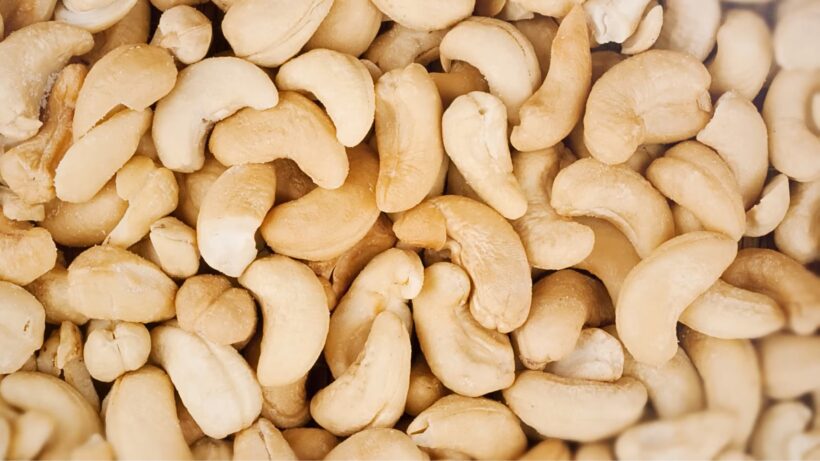
Cashews are a nutritious and delicious snack that offer several health benefits. Here is a breakdown of the nutritional profile of cashews:
| Nutrient | Amount per 100g |
| Calories | 553 |
| Protein | 18g |
| Fat | 44g |
| Carbohydrates | 30g |
| Fiber | 3.3g |
| Sugar | 5.9g |
| Vitamin E | 5.3mg |
| Vitamin K | 34.1mcg |
| Calcium | 37mg |
| Iron | 3.8mg |
| Potassium | 660mg |
Cashews are a good source of protein, with 18g per 100g serving. They also contain healthy fats, mainly monounsaturated fats, which can help boost heart health.
Cashews provide essential vitamins and minerals such as vitamin E for antioxidant protection, vitamin K for blood clotting, calcium for bone health, iron for oxygen transport, and potassium for nerve function.
These nutrient-dense nuts also offer dietary fiber, which aids in digestion and helps regulate blood sugar levels. Including cashews in a balanced diet can contribute to overall well-being and support various bodily functions.
It’s important to note that while cashews are nutritious, they should be consumed in moderation due to their high-calorie content. Incorporating a variety of nuts and seeds into your diet can further enhance the nutritional benefits and provide a range of nutrients.
In summary, cashews have a rich nutritional profile, providing protein, healthy fats, vitamins, minerals, and fiber. Including them in your diet can help promote overall health and well-being.
How Can Cashews Help Manage Blood Sugar Levels?
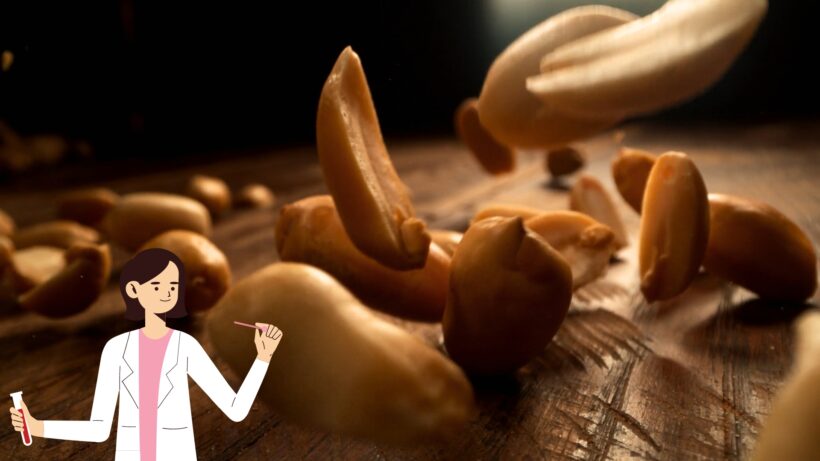
Curious about how cashews can play a role in managing blood sugar levels? Let’s dig into the nitty-gritty and explore the benefits of cashews in this regard.
From being rich in healthy fats to providing dietary fiber, moderate carbohydrates, and plant-based protein, each sub-section will uncover how these nutritional properties make cashews a potential ally in maintaining healthy blood sugar levels.
So, get ready to discover the hidden powers of this delicious nut!
1. Rich in Healthy Fats
Cashews are a nutritious food that is rich in healthy fats, making them an excellent addition to a healthy diet. Including cashews in your meals and snacks can be beneficial for managing blood sugar levels. Here are some reasons why cashews are a great source of healthy fats:
- Cashews contain monounsaturated fats, which are considered heart-healthy fats. These fats play a crucial role in lowering bad cholesterol levels and reducing the risk of heart disease.
- The healthy fats found in cashews can improve insulin sensitivity, a key factor in maintaining stable blood sugar levels. Insulin is necessary for the effective utilization of glucose by the body.
- When consumed as part of a meal, cashews can slow down the absorption of carbohydrates, preventing sudden spikes in blood sugar levels.
- The fats in cashews promote feelings of satiety and can aid in better weight management, which is particularly important for individuals with diabetes or those at risk of developing the condition.
- In addition to being rich in healthy fats, cashews provide essential nutrients such as magnesium and vitamin E. These nutrients have been linked to improved blood sugar control.
While cashews contribute to a balanced diet, it is crucial to practice portion control. Although they are a healthy source of fats, cashews are calorie-dense. Limit your portion size to a handful of cashews to avoid excessive calorie consumption.
Incorporating cashews into your diet can provide you with a good source of healthy fats, ultimately helping you manage your blood sugar levels.
So, don’t forget to include them in your meals and snacks to enjoy their nutritional benefits.
2. High in Dietary Fiber
One of the reasons why cashews can help in managing healthy blood sugar levels is because they are high in dietary fiber. Dietary fiber plays a crucial role in regulating blood sugar levels and promoting overall digestive health.
- Dietary fiber helps slow down the absorption of glucose, preventing spikes in blood sugar levels after a meal.
- It promotes a feeling of fullness, reduces overeating and assisting in weight management.
- Fiber also helps improve insulin sensitivity, allowing cells to effectively utilize glucose for energy.
- Consuming foods high in dietary fiber has been linked to a reduced risk of developing type 2 diabetes.
Cashews are a great source of dietary fiber. In a 1-ounce serving of cashews, there are approximately 1 gram of dietary fiber. This represents about 4% of the recommended daily intake of fiber for an average adult.
When incorporating cashews into your diet, it’s important to keep portion control in mind. While cashews are nutritious, they are also calorie-dense. It’s recommended to consume them in moderation to avoid excessive calorie intake.
Cashews are not only delicious but also a beneficial addition to a healthy diet, especially for individuals looking to manage their blood sugar levels. With their high dietary fiber content, cashews can contribute to stable blood sugar levels and overall improved health.
Cashews: the carb-friendly nut that won’t send your blood sugar on a rollercoaster ride.
3. Moderate in Carbohydrates
Cashews are a delicious and nutritious snack that can be enjoyed as part of a healthy diet. One of the reasons why cashews are beneficial for managing blood sugar levels is that they are moderate in carbohydrates. This means that they do not cause a rapid spike in blood sugar levels like high-carbohydrate foods do.
To understand the carbohydrate content of cashews, let’s take a look at the following table:
| Food | Serving Size | Carbohydrates |
| Cashews | 1 ounce (28 grams) | 9 grams |
| White Rice | 1 cup (158 grams) | 45 grams |
| Bread | 1 slice (28 grams) | 15 grams |
As you can see, cashews have a much lower carbohydrate content compared to other staple foods like rice and bread. This makes them a suitable choice for individuals looking to manage their blood sugar levels.
Now, let me share a true story to illustrate the benefits of moderate carbohydrate intake. John, a middle-aged man with diabetes, incorporated cashews into his diet. He replaced his usual high-carbohydrate snacks with a small handful of cashews.
Over time, John noticed that his blood sugar levels were more stable and he felt more satisfied after his snacks. This allowed him to maintain better control over his diabetes and improve his overall health.
Cashews are a great option for individuals who are mindful of their carbohydrate intake. Their moderate carbohydrate content can help manage blood sugar levels effectively.
Incorporating cashews into a balanced diet can contribute to improved health outcomes for individuals with diabetes or those aiming to maintain balanced blood sugar levels. Plant-based protein? Cashews have got you covered!
4. Source of Plant-Based Protein

When it comes to managing healthy blood sugar levels, cashews are a great source of plant-based protein. Here are a few reasons why:
- Cashews are high in protein, with around 18 grams of protein per 100 grams of cashews. This makes them an excellent choice for individuals looking to increase their protein intake.
- Plant-based proteins, like those found in cashews, can be beneficial for blood sugar management. They have a minimal impact on blood sugar levels compared to carbohydrates, allowing for more stable blood sugar control.
- The protein in cashews can help to slow down the digestion and absorption of carbohydrates, which can help prevent rapid spikes in blood sugar levels after a meal.
- Cashews are also rich in healthy fats, which can further aid in blood sugar management. The combination of protein and fats in cashews can help to increase satiety and reduce cravings for sugary foods, helping to maintain more stable blood sugar levels.
- Including cashews as part of a balanced meal or snack can help provide a steady release of energy throughout the day, reducing the risk of blood sugar imbalances.
Remember, it’s important to incorporate cashews in moderation as part of a balanced diet. While they have many health benefits, they are also high in calories, so portion control is key. As with any food, it’s important to listen to your body and monitor blood sugar levels to determine what works best for you.
Get cracking on these cashews for a heart-healthy, weight-managing, bone-strengthening snack that’ll have you nuts about their other health benefits!
Other Health Benefits of Cashews
Did you know that cashews offer more than just a delicious snack? In this section, we’ll uncover the other health benefits that cashews have to offer. From supporting a healthy heart to aiding in weight management and promoting strong bones, we’ll explore the various ways that these tasty nuts can contribute to overall well-being.
So, let’s dive in and discover the additional perks that come with enjoying a handful of cashews!
1. Heart Health
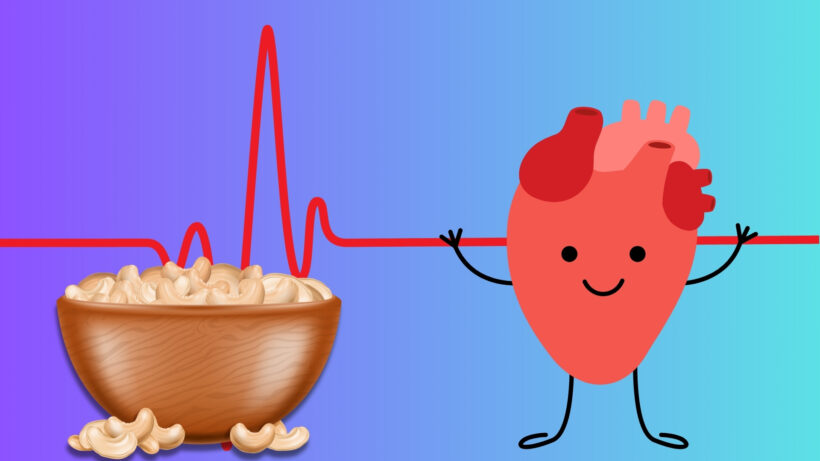
When it comes to heart health, incorporating cashews into your diet can be a beneficial choice. Here are some reasons why cashews are good for your heart:
- High in monounsaturated fats: Cashews are rich in heart-healthy fats, specifically monounsaturated fats. These fats play a significant role in lowering bad cholesterol levels and reducing the risk of heart disease.
- Source of antioxidants: Cashews contain antioxidants like vitamin E, which help decrease oxidative stress and inflammation in the body. This has a positive impact on heart health.
- Good for blood pressure: Cashews have a winning combination of being low in sodium and high in potassium, making them ideal for maintaining healthy blood pressure levels. Potassium counters the effects of sodium and supports proper functioning of the heart and blood vessels.
To include cashews in a heart-healthy diet, consider the following suggestions:
- Swap chips and other processed snacks with a handful of cashews as a healthier snack option.
- Incorporate cashews into main dishes like stir-fries or curries to add texture and flavor, making your meals more delicious and nutritious.
- Add cashews to salads and side dishes to give them a crunchy and nutritious element.
However, remember that moderation is essential. Cashews are calorically dense, so it’s important to be mindful of portion sizes and include them in your overall calorie intake.
If you have any allergies or sensitivities to nuts, it’s crucial to consult with a healthcare professional before adding cashews to your diet. Embrace the various health benefits that cashews can provide, particularly their positive impact on heart health!
Munching on cashews can help curb cravings and keep you feeling satisfied, making weight management a nutty piece of cake.
2. Weight Management
When it comes to weight management, incorporating cashews into your diet can be beneficial. Here are some key ways in which cashews can aid in weight management:
- Cashews play a vital role in weight management: They are rich in healthy fats, such as monounsaturated and polyunsaturated fats. These fats can help promote satiety and keep you feeling full for longer periods, reducing the likelihood of overeating or snacking on unhealthy foods.
- Cashews also contribute to weight management because they are high in dietary fiber. Fiber plays a crucial role in weight management as it adds bulk to your meals, making you feel fuller for longer, and aids in digestion. This can help prevent overeating and reduce the overall calorie intake.
- While cashews do contain carbohydrates, they are moderate in quantity. Moderation in carbohydrate intake is important for weight management as excessive carbohydrate consumption can lead to weight gain. Including cashews as a part of a balanced diet can ensure you get the necessary energy without overdoing the carb intake.
- Cashews are a good source of plant-based protein. Protein is known to boost feelings of fullness, increase satiety, and support muscle growth and repair. Incorporating protein-rich foods like cashews in your diet can help with weight management and overall body composition.
Including cashews in your diet for weight management is a healthy choice. It’s important to remember that portion control is crucial. While cashews offer numerous health benefits, they are also calorie-dense.
Moderation is key to preventing excessive calorie intake. If you have any allergies or sensitivities to nuts, it’s essential to be cautious and consult with a healthcare professional before including cashews in your diet.
3. Bone Health

When it comes to bone health, cashews can play a beneficial role due to their nutritional profile and specific properties. Here are some reasons why cashews are good for bone health:
- Excellent source of calcium: Cashews are a rich source of calcium, which is essential for maintaining strong and healthy bones. Calcium makes up a significant portion of bone tissue and helps in maintaining bone density and strength.
- Magnesium content: Cashews are also high in magnesium, another mineral important for bone health. Magnesium assists in the absorption and metabolism of calcium, contributing to bone mineralization and overall bone health.
- Vitamin K: Cashews contain vitamin K, a nutrient that is necessary for bone formation and mineralization. Vitamin K helps in the synthesis of osteocalcin, a protein involved in the binding of calcium to the bone matrix.
- Protein content: Cashews are a source of plant-based protein, which provides the building blocks needed for the maintenance and repair of bone tissue. Protein is essential for the growth, development, and maintenance of bones.
By including cashews in your diet, you can support your bone health and contribute to maintaining strong and healthy bones. It’s important to note that cashews should be consumed as part of a balanced diet and not solely relied upon for bone health.
Other factors, such as regular exercise and sufficient intake of other bone-supporting nutrients, are also important for overall bone health.
Cashews: the nutty secret to a healthy diet that will leave you feeling anything but salty.
How to Incorporate Cashews in a Healthy Diet?
Wondering how to add the nutritious power of cashews to your daily meals? Look no further! Discover various ways to incorporate cashews into a healthy diet and unlock their potential benefits.
Whether it’s as a delicious snack, a flavorful addition to main dishes, or a crunchy topping for salads and side dishes, this section will guide you through creative ideas and mouthwatering recipes that will elevate your overall well-being.
Get ready to embark on a flavorsome journey with cashews as your secret ingredient!
1. As a Snack
When incorporating cashews as a snack into your healthy diet, you can enjoy them in various ways. Here are some reasons why:
- Rich in nutrients: Cashews are packed with essential nutrients such as vitamins, minerals, and antioxidants that can support overall health.
- Healthy fats: Cashews, when consumed as a snack, serve as a great source of healthy fats, including monounsaturated fats, which have been shown to help reduce the risk of heart disease.
- Satisfying: Cashews provide a good amount of protein and healthy fats, making them a satisfying snack that can help keep you feeling full and satisfied between meals.
- Energy boost: Cashews, when enjoyed as a snack, are a good source of energy due to their carbohydrate content. They can provide a quick pick-me-up during the day when you need a boost.
- Easy to carry: As a snack, cashews are portable and can be conveniently packed in small containers or snack bags, making them a convenient snack option to take with you on the go.
- Versatile: Cashews can be enjoyed on their own as a snack or used as a topping for salads, yogurt, or smoothie bowls. They can also be incorporated into recipes for energy bars or homemade trail mix.
When enjoying cashews as a snack, it’s important to keep portion control in mind. As delicious as they are, cashews are high in calories, so be mindful of the amount you consume to maintain a balanced diet. As with any food, if you have any allergies or sensitivities to cashews, it’s important to avoid consuming them to prevent any adverse reactions.
Add some crunch to your main dishes with cashews and manage blood sugar levels with a tasty twist.
2. In Main Dishes
Cashews can be a versatile and nutritious addition to main dishes. Here are some ideas to incorporate them
- Stir-Fries: Add cashews to your vegetable stir-fries for a crunchy texture and nutty flavor. They can complement various vegetables such as broccoli, bell peppers, and snap peas.
- Curries: Cashews can enhance the richness of curries. Grind them into a paste or use them as a topping to add creaminess and nuttiness to your curry dishes.
- Grain Bowls: Create a satisfying grain bowl by adding cashews as a protein source. Combine cooked grains like quinoa or brown rice with vegetables, legumes, and cashews. Drizzle with some balsamic vinegar or lemon juice for added flavor.
- Noodle Dishes: Cashews can elevate noodle dishes such as pad thai or sesame noodles. Crushed or chopped cashews can provide a delightful crunch and enhance the overall taste of the dish.
- Adding cashews to salads and side dishes brings a delightful crunch, making healthy eating less of a ‘we’ll see’ and more of a ‘yes, please’.
3. In Salads and Side Dishes
When it comes to incorporating cashews in salads and side dishes, there are numerous options to consider:
- Crunchy Cashew Salad: Add a handful of cashews to your favorite salad for a delightful crunch. They can be a great addition to green salads, pasta salads, or grain salads.
- Thai Cashew Slaw: Toss shredded cabbage, carrots, and bell peppers with a dressing made from lime juice, soy sauce, and honey. Top it off with a generous amount of cashews for a Thai-inspired slaw.
- Stir-Fried Vegetables with Cashews: Sauté your choice of vegetables like bell peppers, broccoli, and snap peas in a hot pan with a little oil. Sprinkle a handful of cashews over the vegetables in the final minutes of cooking for added texture and taste.
- Cashew and Quinoa Pilaf: Cook quinoa according to package instructions and stir in sautéed onions, garlic, and your choice of vegetables. Add cashews for a nutty flavor and extra protein.
- Cashew Pesto Pasta: Blend cashews, basil, garlic, Parmesan cheese, olive oil, and a squeeze of lemon juice in a food processor to make a creamy cashew pesto sauce. Toss the sauce with cooked pasta and serve as a side dish or main course.
When it comes to incorporating cashews in salads and side dishes, there are numerous options to consider. These ideas can be used for adding a delightful crunch and nutty flavor to various types of salads and side dishes. Feel free to get creative and experiment with different combinations of ingredients.
Cashews add a delicious and nutritious element to salads and side dishes.
Considerations and Precautions
When it comes to managing healthy blood sugar levels, there are important considerations and precautions to keep in mind. In this section, we’ll explore two key aspects: portion control and allergies/sensitivities.
Discover how being mindful of your portions and understanding any potential allergies or sensitivities can play a crucial role in maintaining stable blood sugar levels. So, let’s dive in and uncover the essential factors for effectively managing your blood sugar with the help of cashews!
1. Portion Control
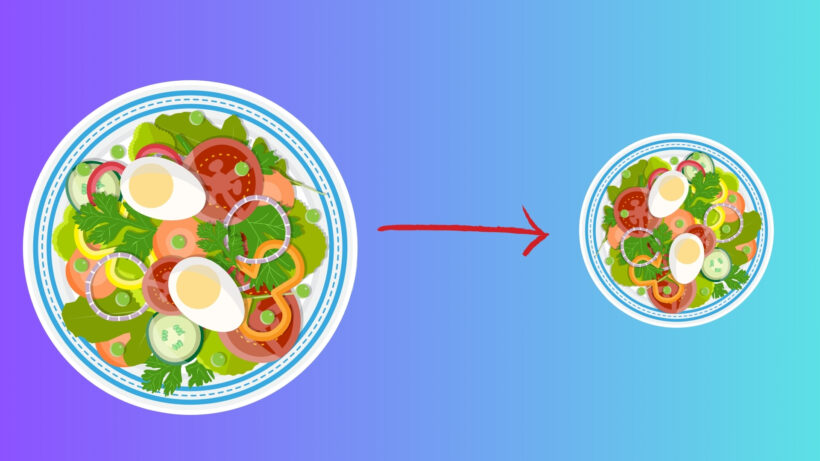
When it comes to managing healthy blood sugar levels, portion control plays a crucial role. It is important to consume the right amount of cashews to reap their benefits without causing any imbalances.
- Measure: It is recommended to measure your portion of cashews rather than eating directly from the container. This will help you keep track of the quantity you are consuming.
- Avoid overeating: Cashews are nutrient-dense and high in calories. Be mindful of the portion size to avoid exceeding your calorie intake for the day.
- Stick to serving sizes: A typical serving size for cashews is around 1 ounce or 28 grams, which is approximately a small handful. This provides a good balance of nutrients without going overboard.
- Consider your daily calorie requirements: Depending on your individual needs, you may adjust your portion size accordingly. For example, if you are on a low-calorie diet, you may need to reduce the portion size of cashews.
- Incorporate cashews into meals: Instead of snacking on cashews alone, consider adding them to your meals. This allows you to control the portion better while enjoying their flavor and nutritional benefits.
- Pair with other foods: To make your snack or meal more balanced, combine cashews with other complementary foods such as fruits, yogurt, or vegetables. This will help manage blood sugar levels and ensure a well-rounded diet.
- Consult a healthcare professional: If you have specific dietary requirements or health conditions, it is always advisable to consult a healthcare professional for personalized advice on portion control.
By practicing portion control, you can enjoy the benefits of cashews while maintaining healthy blood sugar levels and overall well-being.
2. Allergies and Sensitivities
Allergies and sensitivities have always been a concern for many individuals. Cashews, being delicious and nutritious nuts, offer numerous health benefits. However, it is important to be aware of potential allergies and sensitivities related to cashews.
- Common Allergic Reactions: Some individuals may experience allergic reactions to cashews, which can range from mild to severe. Symptoms may include itching, swelling, hives, difficulty breathing, and even anaphylaxis in rare cases.
- Cross-Reactivity: Allergies to cashews may also be associated with allergies to other tree nuts, such as almonds, walnuts, or pistachios. Individuals with known tree nut allergies should exercise caution and consult with a healthcare professional before consuming cashews.
- Nut Allergy Precautions: If you have a cashew allergy, it is important to read food labels carefully and avoid foods or products that may contain cashews. Pay attention to food preparation methods, as cross-contamination with cashews can occur in some cases.
- Sensitivities: Some individuals may experience gastrointestinal discomfort or digestive issues after consuming cashews. This can include symptoms such as bloating, gas, or diarrhea. If you notice any adverse effects after eating cashews, it is recommended to reduce your intake or consult a healthcare professional.
It’s important to know your own allergies and sensitivities and take appropriate precautions when consuming cashews. If you have any concerns or experience severe allergic reactions, seek immediate medical attention.
By being knowledgeable and cautious, you can continue to enjoy the benefits of cashews while managing any potential allergies or sensitivities.
Historically, allergies and sensitivities have been a topic of concern for many individuals. It is crucial to stay informed and take necessary precautions when it comes to food allergies.
By understanding the potential risks associated with cashew allergies and sensitivities, individuals can make informed decisions about their diet and ensure their well-being and safety.
The Role of Cashews in Managing Healthy Blood Sugar Levels:
- ✅ Cashews are a good source of protein, healthy fats, and antioxidants. (Source: Our Team)
- ✅ Regular consumption of tree nuts like cashews can lower the risk of developing type-2 diabetes and heart diseases. (Source: NDTV)
- ✅ Nuts have been associated with a decreased prevalence of risk factors for cardiovascular diseases, type-2 diabetes, and metabolic syndrome. (Source: NDTV)
- ✅ Cashews contain healthy fats that protect the heart and regulate blood sugar levels, making them a good snacking option for diabetics. (Source: NDTV)
- ✅ Cashews help lower blood sugar levels and are lower in fat compared to other nuts. (Source: Breathewellbeing)
Frequently Asked Questions
Are cashews suitable for a diabetic diet?
Yes, cashews can be included in a diabetic diet. Nuts, including cashews, have been found to reduce the risk of cardiovascular problems and type 2 diabetes. Cashews contain healthy fats, such as mono-unsaturated fat, and can help regulate blood sugar levels.
How do cashews affect blood sugar levels?
Cashews have a low glycemic index and are unlikely to significantly raise blood sugar levels when consumed in moderation. They can be a blood glucose-friendly snack option as they contain healthy fats that protect the heart and regulate blood sugar levels.
Can eating cashews improve cholesterol profiles?
Yes, eating cashews can improve cholesterol profiles. Cashews are lower in fat compared to other nuts but contain heart-healthy mono-unsaturated fat. They have been associated with lowering atherogenic indices and reducing the risk of heart disease.
How many cashews should I consume daily for a healthful life?
It is recommended to consume a handful of nuts, including cashews, every day for a healthful life. However, it is important to consult a doctor and check for any allergies before making dietary changes.
Are unsalted raw cashews better for managing blood sugar levels?
Yes, unsalted raw cashews are recommended to manage blood sugar levels. Choosing unsalted options helps avoid added sodium and oils that may affect blood sugar levels.
Can cashews be included in a low carbohydrate diet?
Yes, cashews can be included in a low carbohydrate diet as they are a versatile food that can be added to many dishes. They are also suitable for those on a lower carb or vegan diet and can be a good snack or meal topping option. However, portion control is important due to their calorie density.
Astrona Knight is the Editor-in-Chief at Fischer Institute, where she shares her extensive knowledge on health and wellness topics. Her insightful articles cover everything from diet and nutrition to mental health, providing readers with practical tips and the latest research findings.
Also Read:
- Uncovering the Best Peanut Butter for Diabetics:…
- Major Side Effects OF Eating Too Many Blueberries -…
- Activated Charcoal for Food Poisoning: Benefits and…
- Taste the World: The Crucial Role of Translation &…
- Easy Keto Vanilla Pudding Dessert Recipe: Sugar Free
- Testofuel vs Prime Male - Increase Your Testosteron Levels

